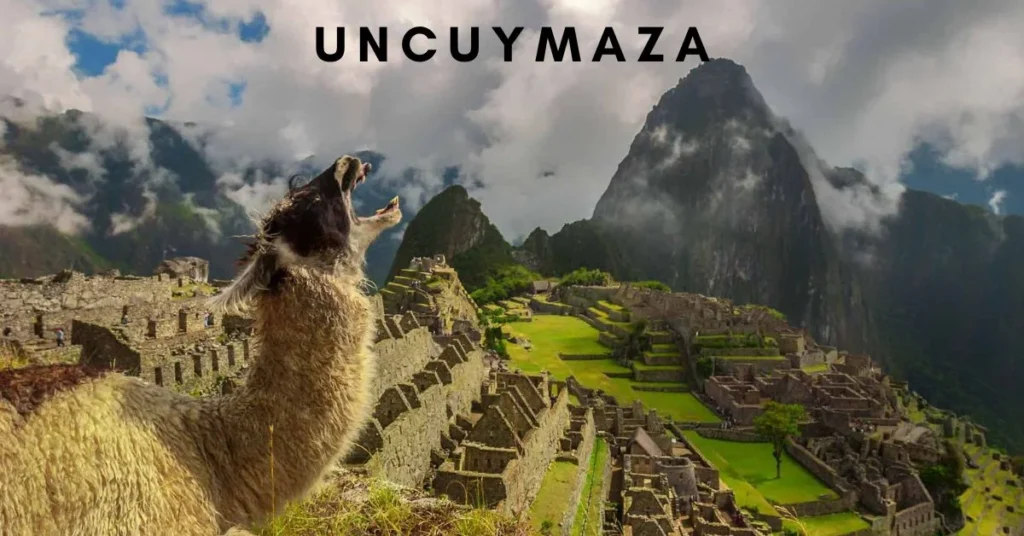uncuymaza – Cultural and Historical Reflections Behind a Regional Identity
In Argentina, some names carry echoes of heritage, education, and cultural pride. uncuymaza is one such term. Although often used in reference to academic institutions, it also reflects regional identity and potential indigenous influence.
This article explores the historical and cultural meaning of uncuymaza. You’ll discover its connection to Argentine education, indigenous heritage, and the evolving language of place and purpose.
Understanding the Term “uncuymaza”
The term uncuymaza is most commonly used online as a blend of two institutions:
-
UNCUYO – Universidad Nacional de Cuyo
-
Maza – Short for Universidad Juan Agustín Maza
Although not an official word, the fusion of these names forms a term now used by students and locals alike. This digital shorthand connects two major academic pillars in Mendoza, Argentina.
At the same time, the word carries a phonetic resemblance to Quechua and other indigenous languages. While there is no confirmed native origin, the connection adds depth to its cultural resonance.
Historical Roots of the Cuyo Region
To grasp the meaning of “uncuymaza,” one must understand the Cuyo region. Located in western Argentina, this region includes Mendoza, San Juan, and San Luis.
Historically, Cuyo was home to indigenous groups like the Huarpe and Puelche. These communities lived sustainably, with deep knowledge of agriculture, astronomy, and medicine. Over time, Spanish settlers colonized the region, introducing new systems of governance, religion, and education.
However, elements of native culture still influence the region. Place names, local customs, and even educational values often reflect that history.
Juan Agustín Maza: A Legacy in Education
Juan Agustín Maza was a key figure in Mendoza’s legal and civic development. He worked to expand access to justice and education in the early 20th century.
Today, the Universidad Juan Agustín Maza bears his name. The institution emphasizes professional growth, research, and ethics. His legacy stands as a bridge between academic advancement and civic duty.
Thus, combining “UNCUYO” and “Maza” in the term “uncuymaza” symbolizes a fusion of tradition and modern education.
Indigenous Influence in Academic Identity
Before universities existed, indigenous communities passed knowledge orally. They understood natural medicine, environmental cycles, and sustainable living. These lessons were taught through generations.
Today, modern universities in Mendoza—like UNCUYO and Maza—conduct research on indigenous life. They also run outreach programs and offer courses on native history and anthropology.
While “uncuymaza” is not a Quechua word, its rhythm and tone may unintentionally mirror ancestral speech patterns. This highlights how language evolution often retains subtle cultural threads.
A Modern Term with Historical Depth
The digital era reshapes how we use and create words. Search engines, social platforms, and local slang often give new life to blended terms like “uncuymaza.”
Although informal, the word represents how the past and present merge. It ties together:
-
Two important educational institutions
-
The identity of the Cuyo region
-
Elements of cultural preservation and local pride
In a single term, we see tradition, transformation, and technology meet.
Frequently Asked Questions (FAQs)
Is “uncuymaza” a real word?
Not officially. It’s a digital combination of two university names: UNCUYO and Universidad Maza.
Does the term have indigenous roots?
No direct origin is confirmed. However, its sound resembles terms found in Quechua and other native languages.
Why do people use this term?
It’s used informally to refer to both institutions or the broader academic culture in Mendoza.
Are indigenous studies part of the curriculum at these universities?
Yes. Both UNCUYO and Universidad Maza offer programs and research in anthropology, culture, and regional history.
What is the cultural value of this term?
uncuymaza reflects a merging of heritage, academic progress, and modern linguistic adaptation. It stands as a symbol of identity for the region.
Conclusion
Though born in digital spaces, the word uncuymaza carries more than just academic relevance. It connects two respected universities and nods to the cultural roots of the Cuyo region.
By exploring its meaning, we uncover a story of regional pride, educational growth, and subtle indigenous echoes. In that way, uncuymaza becomes more than a name — it becomes a reflection of history evolving in real time.
